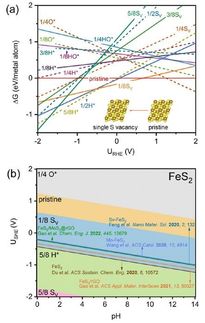On the trail of new options for energy conversion
The Max Planck Institute for Bioinorganic Chemistry in Mülheim is set to change its name. Given its new focus on energy research, it will now be called the Max Planck Institute for Chemical Energy Conversion.
For many years now, the Max Planck Institute for Bioinorganic Chemistry has conducted research into the chemical processes of photosynthesis in green plants. This involves the cleavage of water and conversion of the energy-rich intermediate products with CO2 into stable storage molecules for solar energy. "Unfortunately, the complexity of the different reactions means that it is not possible to copy this procedure for storing energy from renewable sources directly", says Robert Schlögl, Director at the Fritz Haber Institute of the Max Planck Society in Berlin.
Consequently, this area of research is now to be greatly expanded. In future, the Institute will concentrate more on fundamental questions of chemical conversion and energy storage. The aim is to study reactions that involve only molecules (homogeneous catalysis) and those that take place at the surface of solids (heterogeneous catalysis). These reactions may be driven directly by sunlight or store surplus electrical energy, and could lead to the use of hydrogen for storing solar energy.
The federal state government of North Rhine Westphalia also welcomes the new research direction of the Max Planck Institute in Mühlheim. After the resolution of the Senate's Assembly, Minister President Hannelore Kraft said "A hundred years after the foundation of the MPI for Coal Research, the demands on our energy supply have changed. We must use energy in a much more efficient manner than previously. And we need more renewable energies and options for energy storage. The existing Institute will be expanded into the Max Planck Institute for Chemical Energy Conversion in Mühlheim with a view to carrying out more intensive research into chemical energy conversion and storage. The project has our support as the local government of North Rhine Westphalia."
The new Institute for Chemical Energy Conversion will focus above all on catalysts that are capable of accelerating the relevant reactions. Its central mission will be to activate small molecules such as water, nitrogen and carbon dioxide, which occur frequently in nature. "It will form part of the Mülheim-based chemistry campus, which will continue to maintain its long tradition of dedication to the key concern of chemistry: creating (storage) materials", according to Schlögl.
With the extension of its fields from molecular processes to areas of solid-state and interface chemistry, and the development of new analytical procedures for reacting interfaces, the Institute will become much larger and will continue its tradition of interdisciplinary research between synthesis and characterisation.
"In this way, the Max Planck Society proves how it is continually renewing itself and expanding the boundaries of knowledge", says Peter Gruss, President of the Max Planck Society. "At the same time, we are assuming social responsibility by focusing considerable resources on the issue of energy supply; because if we are to develop a sustainable energy system with lasting stability, there is an urgent need for more progress in basic research."
Other news from the department science

Get the chemical industry in your inbox
By submitting this form you agree that LUMITOS AG will send you the newsletter(s) selected above by email. Your data will not be passed on to third parties. Your data will be stored and processed in accordance with our data protection regulations. LUMITOS may contact you by email for the purpose of advertising or market and opinion surveys. You can revoke your consent at any time without giving reasons to LUMITOS AG, Ernst-Augustin-Str. 2, 12489 Berlin, Germany or by e-mail at revoke@lumitos.com with effect for the future. In addition, each email contains a link to unsubscribe from the corresponding newsletter.



























































